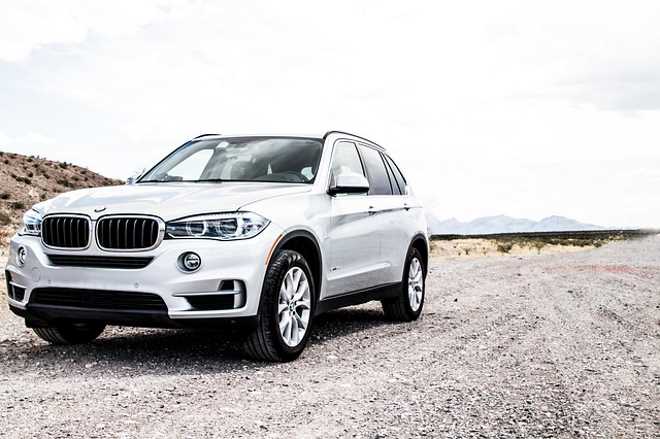Luxury SUV Deals: Find the Ideal Vehicle for You
The luxury SUV segment has grown dramatically, from compact crossovers to full-size premium haulers. This guide breaks down what to look for—features, performance, ownership costs—and compares top contenders like the Genesis GV80/GV70, BMW X5, Mercedes GLE, Audi Q7, and Lexus RX. Learn strategies to uncover the best deals, whether you prefer new, certified pre-owned, or leased vehicles. Get practical tips to match a luxury SUV to your lifestyle and budget.

The SUV market has expanded rapidly, offering drivers a wide selection of premium vehicles that combine comfort, capability, and advanced technology. Whether you want a nimble compact crossover or a sprawling full-size luxury SUV, the right choice depends on how you use the vehicle and which features matter most. Below is a practical guide to spotting high-value luxury SUVs and securing a deal that fits your lifestyle.
What defines a luxury SUV?
Luxury SUVs deliver more than just size and utility: they prioritize refined ride quality, upscale materials, and cutting-edge technology. Typical features to expect include leather seating, advanced infotainment systems, premium audio, and comprehensive driver-assistance suites. A smooth, quiet ride with minimal road vibration is also a hallmark—look for sound-deadening construction, adaptive suspension, and chassis tuning aimed at comfort.
How Genesis compares to established luxury names
Genesis, Hyundai’s upscale division, has become a serious player in the luxury SUV arena with models like the GV70 and GV80. These vehicles emphasize striking design, high-end cabin materials, and strong standard equipment levels. In many cases Genesis bundles technology and comfort features that other premium brands reserve for costly option packages, giving buyers substantial value for the money.
That said, Genesis is still building its prestige relative to long-standing European marques. Brands such as BMW, Mercedes-Benz, Audi, and Lexus have decades of cachet and established dealer networks. Yet reviews and owner feedback consistently praise Genesis for interior quality and competitive pricing, making it a compelling alternative for shoppers who want luxury appointments without paying top European premiums.
Key factors to consider when choosing a luxury SUV
-
Size and seating needs: Decide between compact, midsize, or full-size based on how many passengers and how much cargo you regularly carry. Third-row seating becomes relevant for larger families.
-
Performance and efficiency: Examine engine options, horsepower, torque, and available hybrid or plug-in hybrid variants. Consider fuel economy if daily commuting is a priority.
-
Technology and safety: Compare infotainment screen size, smartphone integration, audio systems, and advanced driver-assistance features like adaptive cruise, lane-keeping, and automated emergency braking.
-
Brand reputation and reliability: Research reliability scores, warranty coverage, and owner satisfaction to anticipate long-term ownership experience.
-
Total cost of ownership: Factor in insurance, routine maintenance, repair costs, and fuel—these often outweigh small differences in purchase price over the life of the vehicle.
-
Styling and personal preference: Exterior and interior design matter—choose a vehicle that aligns with your aesthetic and comfort preferences.
Current luxury SUV pricing snapshot
| Model | Brand | Starting Price (USD) | Key Features |
|---|---|---|---|
| GV80 | Genesis | $55,550 | 14.5-inch infotainment screen, 3D digital cluster |
| X5 | BMW | $61,600 | xDrive all-wheel drive, Live Cockpit Professional |
| GLE | Mercedes-Benz | $57,700 | MBUX infotainment system, 4MATIC all-wheel drive |
| Q7 | Audi | $58,200 | Virtual cockpit, quattro all-wheel drive |
| RX | Lexus | $48,550 | Lexus Safety System+ 3.0, hybrid powertrain option |
Prices, rates, or cost estimates mentioned in this article are based on the latest available information but may change over time. Independent research is advised before making financial decisions.
Note that the figures above represent base-model starting prices. Adding packages, optional equipment, or selecting higher trims will increase the final purchase price. Dealer incentives, regional promotions, and timing can also affect the amount you pay.
How to secure the best luxury SUV deal
Timing and preparation are as important as the vehicle choice itself. Use these strategies to lower your purchase or lease cost:
-
Time your purchase: Dealers often offer better pricing at model-year changeovers, the end of quarters, or during major holiday sales events.
-
Do thorough research: Use online pricing tools and compare inventory across multiple dealerships to identify fair market values and available incentives.
-
Negotiate confidently: Knowledge is leverage. If you know invoice pricing, average transaction prices, and current incentives, you can negotiate from a position of strength.
-
Consider certified pre-owned (CPO): Many luxury marques offer CPO programs that include extended warranties and inspections, delivering nearly-new condition at a notable discount versus brand-new units.
-
Evaluate leasing: Leasing can lower monthly payments and allow you to drive a higher-trim model for less cash up front. Factor in mileage limits and end-of-lease charges when deciding.
-
Hunt for incentives: Manufacturers periodically offer cash rebates, low-interest financing, or loyalty bonuses—these can meaningfully reduce total cost.
Final considerations
Luxury SUVs offer compelling combinations of comfort, capability, and technology. If value is a priority, Genesis delivers strong equipment levels for the price, while established European brands often offer driving dynamics and prestige that some buyers prefer. Ultimately, match vehicle size, features, and ownership costs to your lifestyle, and shop strategically—research, timing, and negotiation can save you thousands. With the right approach, you can find a luxury SUV that balances performance, comfort, and budget to suit your life.




